Planning worship?
Check out our sister site, ZeteoSearch.org,
for 20+ additional resources related to your search.
- |
User Links
Person Results
‹ Return to hymnal

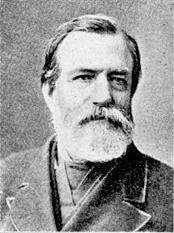
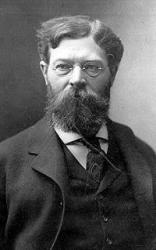
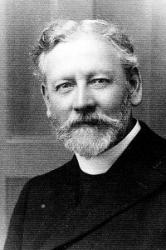
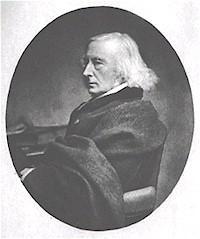
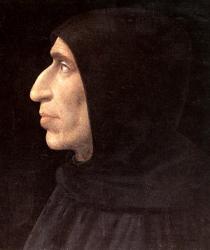
Export as CSV
James Merrick
1720 - 1769 Hymnal Number: d24 Author of "As pants the hart for cooling flood [springs] [streams]" in The New Church Hymnal Merrick, James , M.A., was born in 1720, and educated at Oxford, where he became a Fellow of Trinity College. He entered Holy Orders, but his health would not admit of parish work. He died at Reading, 1769. His publications include:—
(1) Messiah, a Divine Essay. Humbly dedicated to the Reverend the Vice-Chancellor of the University of Oxford and the Visitors of the Free School in Reading. By James Merrick, Ætat. 14, Senior Scholar of the School at their last Terminal Visitation, the 7th of October, 1734. Reading. (2) The Destruction of Troy. Translated from the Greek of Tryphiodorus into English Verse, with Notes, &c. 1742. (3) Poems on Sacred Subjects. Oxford . 1763. (4) The Psalms of David Translated or Paraphrased in English Verse. By James Merrick, M.A., late Fellow of Trinity College, Oxford. Reading. J. Carnan and Co. 1765. 2nd ed. 1766. A few only of these paraphrases were divided into stanzas. In 1797 the Rev. W. D. Tattersall pulished the work "Divided into stanzas for Parochial Use, and paraphrased in such language as will be intelligible to every capacity . . . with a suitable Collect to each Psalm from the Works of Archbishop Parker."
Merrick's paraphrases, although weak and verbose, were in extensive use in the early part of the present century, both in the Church of England and with Nonconformists. They have, however, fallen very much into disuse. Those in modern hymn-books, mainly in the form of centos, include:—
1. Blest Instructor, from Thy ways. Ps. xix.
2. Descend, O Lord! from heaven descend. Ps. cxliv. (In time of National Peril.)
3. Far as creation's bounds extend. Ps. cxlv.
4. God of my strength, the wise, the just. Ps. xxxi.
5. He who with generous pity glows. Ps. xli.
6. How pleasant, Lord.Thy dwellings are. Ps. lxxxiv.
7. Lift up your voice and thankful sing. Ps. cxxxvi.
8. Lo, my Shepherd's hand divine. Ps. xxiii.
9. Lord, my Strength, to Thee I pray. Ps. xxviii.
10. My heart its noblest theme has found. Ps.xlv.
11. O let me, [gracious] heavenly Lord extend. Ps. xxxix.
12. O turn, great Ruler of the skies. Ps. li.
13. Praise, O praise the Name divine. Ps. cl.
14. Sing, ye sons of [men] might, O sing. Ps. xxix.
15. Teach me, O teach me, Lord, Thy way. Ps. cxix.
16. The festal morn, my [O] God, is come. Ps. cxxii, (Sunday Morning.)
17. The morn and eve Thy praise resound. Ps. lxv. (Harvest.)
18. To Thy pastures, fair and large. Ps. xxiii.
From his Poems on Sacred Subjects, 1763, the following centos have also come into common use: --
19. Author of good, to Thee we turn. Resignation.
20. Eternal God, we look to Thee. Resignation.
21. 'Tis enough, the hour is come. Nunc Dimittis.
John Julian, Dictionary of Hymnology (1907)
James Merrick
William Henry Furness

1802 - 1896 Hymnal Number: d372 Author of "Slowly, by thy [God's] hand unfurled" in The New Church Hymnal Furness, William Henry, D.D., born in Boston, 1802, and graduated at Harvard in Arts and Theology, 1820. From 1825 he has been an Unitarian Pastor in Philadelphia. He is an accomplished scholar, and has been an active worker in reforms of various kinds. His publications are numerous and
include a Manual of Domestic Worship, 1840, and a translation of Schiller's Song of the Bell.
His hymns are somewhat numerous, and several of them have great merit. The best and most widely used are:—
1. Father in heaven, to Thee my heart. Resignation. Appeared in The Christian Disciple, 1822. It was repeated in this form in some of the older collections, and a few modern hymnals, including the Boston Unitarian Hymns [& Tune] Book, 1868. In 1846 it was given in Longfellow and Johnson's Book of Hymns as "Father in heaven, to Whom our hearts;" again in their Hymns of the Spirit, 1864, and in Dr. Martineau's Hymns of Praise & Prayer, 1873. This hymn is sometimes ascribed to "H. Ware," but in error.
2. Feeble, helpless, how shall I? Jesus our Leader. First published in the Cheshire Unitarian Christian Hymns, 1844, No. 272, in 5 stanzas of 4 lines. It is in several modern collections, including Lyra Sacra Americana, 1868: Thring's Collection, 1882.
3. Have mercy, 0 Father. Divine direction desired. Contributed to Dr. Martineau's Hymns of Praise and Prayer, 1873, in 2 stanzas of 6 lines.
4. Here in a world of doubt. Psalms xlii. Contributed to the N. Y. Lutheran Collection, 1834, and repeated in his Manual of Domestic Worship, 1840, Martineau's Hymns, &c, 1873.
5. Here in the broken bread. Holy Communion. Appeared in the Appendix to the Philadelphia Unitarian Collection, 1828. It is in a few modern collections, including the Boston Unitarian Hymn [and Tune] Book, 1868.
6. Holy Father, Gracious art Thou. Purity & Peace. Contributed to Dr. Martineau's Hymns, &c, 1873, in 1 stanza of 12 lines.
7. I eel within a want. Likeness to Christ desired. Appeared in the Cheshire (U. S.) Unitarian Christian Hymns, 1844, No. 687, in 4 stanzas of 4 lines. It is in a few collections both old and new.
8. In the morning I will raise [pray] . Morning. Appeared in his Manual of Domestic Worship, 1840, in 6 stanzas of 4 lines, and repeated in Dr. Martineau's Hymns, &c, 1873. In Longfellow and Johnson's Book of Hymns, 1846, and the Boston Unitarian Hymn [& Tune] Book it begins with stanzas ii., "In the morning I will pray."
9. 0 for a prophet's fire. Holy Communion. Published in the Appendix to the Philadelphia Unitarian Collection, 1828, and repeated in the Cheshire (U. S.) Unitarian Christian Hymns, 1844, and later hymn-books.
10. Richly, O richly have I been. The Prodigal Son. In his Manual of Devotion, 1840. In Longfellow and Johnson's Book of Hymns, 1846, and their Hymns of the Spirit, 1864, it is given as "O richly, Father, have I been"; whilst in Hedge & Huntington's Hymns for the Church of Christ, 1853, the Boston Unitarian Hymns [and Tune] Book, 1868, and others, it opens with stanzas ii., "Unworthy to be called Thy son."
11. Slowly by Thy [God's] hand unfurled. Eternal Light. Given in his Manual of Domestic Worship, 1840, and repeated in a few hymnals. In Drs. Hedge & Huntington's Hymns for the Church of Christ, 1853, the first line was changed to “Slowly by God's hand unfurled." This is the reading of the Boston Unitarian Hymn [& Tune] Book, 1868. Dr. Martineau retains the original reading in his Hymns, &c, 1873.
12. Thou only Living, only True. Ordination. In Dr. Martineau's Hymns, &c, 1873, where it is dated 1868.
13. To the High and Holy One. Consecration of Church. In Lyra Sacra Americana, 1868. From this is taken "To the truth that makes us free" (stanzas ii.), in the Boston Hymns of the Spirit, 1864.
14. What is the world that it should share? Invocation of the Spirit. Given in The Christian Disciple, 1822, and Dr. Martineau's Hymns, &c, 1873. It begins with stanza ii. of his hymn "Here in Thy temple, Lord, we bow." In Lyra Sacra Americana it reads, "Oh, is there aught on earth to share."
15. What is this that stirs within? The Soul. Appeared in his Manual of Domestic Worship, 1840. In 1844 it passed into the Cheshire (U.S.) Unitarian Christian Hymns, No. 318, and later into numerous collections, both old and new. Furness died in 1896. [Rev. F. M. Bird, M.A.]
--John Julian, Dictionary of Hymnology (1907)
===================
Furness, W. H., p. 402, ii. His Verses, Translations, and Hymns were published 1886. Of his hymns the following, in addition to those on pp. 402-3, have come into common use:—
1. She is not dead, but sleepeth. [Death and Burial.]
2. That God is Love, unchanging Love. [God is Love.] This is in several American collections, including the Boston Unitarian Hymns for Church and Home, 1895, where it is dated 1892.
3. Thou Who dost all things give. [Seeing the Unseen.] This is dated in The Pilgrim Hymnal, 1904, as having been written in 1860. It is from the Author's Verses, &c, 1886. Also in Border's Treat. of Amer. Sacred Song, 1896.
Dr. Furness was b. April 20, 1802, and d. in 1896.
--John Julian, Dictionary of Hymnology, New Supplement (1907)
William Henry Furness
John Kempthorne
1775 - 1838 Hymnal Number: d347 Author of "Praise the Lord, ye heavens adore him" in The New Church Hymnal Born: June 24, 1775, Plymouth, England.
Died: November 6, 1838, Gloucester, England.
Kempthorne, John, B.D., s. of Admiral Kempthorne, was born at Plymouth, June 24, 1775, and educated at St. John's, Cambridge (B.A. 1796, B.D. 1807), of which he subsequently became a Fellow. On taking Holy Orders, he became Vicar of Northleach, Gloucestershire, in 1816; Vicar of Wedmore, Somersetshire, 1827, and the same year Rector of St. Michael's, and Chaplain of St. Mary de Grace, Gloucester. He was also a Prebendary in Lichfield Cathedral from 1826, and sometime Examining Chaplain to the Bishop of that diocese. He died at Gloucester, Nov. 6, 1838. His hymnological work is:—
Select Portions of Psalms from Various Translations, and Hymns,from Various Authors. The whole Arranged according to the yearly Seasons of the Church of England , with attempts at corrections and improvements. By the Rev. John Kempthorne, B.D.....London. Batchard. 1810.
In this collection there are a few hymns of merit, as ”Forgive, O Lord, our wanderings past," "Great God, to Thee our songs we raise," and "Praise the Lord, ye heavens adore Him," which are usually ascribed, on D. Sedgwick's authority, to J. Kempthorne. These hymns, however, are not by Kempthorne, but were taken by him for his collection from the Foundling Hospital Psalms & Hymns, 1796 and 1801-9; and there is no evidence whatever that he had anything to do with that hymn-book. As that book is frequently quoted by hymnologists, we append the title-page of the 1801 ed., which is a reprint of that of 1797:—
Psalms, Hymns, and Anthems; sung in the Chapel of the Hospital for the Maintenance and Education of Exposed and Deserted Young Children. London, Printed in the Year M.DCCC.I. At the end of some copies of this edition there is pasted in a four-paged sheet of hymns which include, with others, "Praise the Lord, ye heavens, adore Him (q.v.)
In the first edition of his own Selection of Portion of Psalms, &c, 1810, Kempthorne did not in any way indicate his own hymns, but in the 2nd ed. of 1813 (which is a reprint of the 1st ed. with an Appendix of 11 hymns) he says in his Preface:—
“For Hymn 140 and Hymn, p. 267. Appendix; for almost all of Ps. 42, p. 197; Ps. 51, p. 57 and 61; Ps. 84, p. 195; Ps. 86, p. 134; Ps. 115, p. 49; Hymn 127 ; and for a considerable part of Ps. 22, p. 64; Ps. 122, p. 103; Ps. 133, p. 141; Ps. 139, p. 38; Hymns 20, 43, 54, 81, 97, 101, 118, and several others, the Editor is responsible, and acknowledges his obligations to some kind friends."
Of these hymns and psalm versions, which Kempthorne claims as his own, only one or two are in common use.
--John Julian, Dictionary of Hymnology (1907)
John Kempthorne
Henry Martyn Dexter

1821 - 1890 Person Name: H. M. Dexter Hymnal Number: d367 Author of "Shepherd of eager [tender] youth" in The New Church Hymnal Dexter, Henry Martyn, D.D., born at Plympton, Mass., Aug. 13, 1821, and educated at Yale College, and Andover. In 1844 he was ordained Pastor of a Congregational Church at Manchester, New Haven. In 1849 he removed to the Berkeley Street Congregational Church, Boston, where he remained until his appointment as Editor of the Congregationalist, in 1867. Dr. Dexter is the translator of “Shepherd of tender youth" [see Clemens, Titus], in common usage in Great Britain and America. [Rev. F. M. Bird, M.A.]
-- John Julian, Dictionary of Hymnology (1907)
Henry Martyn Dexter
St. Stephen of Mar Sabas
725 - 794 Person Name: Stephen of St. Sabas Hymnal Number: d23 Author of "Art thou weary, art thou languid" in The New Church Hymnal
St. Stephen of Mar Sabas
B. H. Draper
1775 - 1843 Person Name: Bourne H. Draper Hymnal Number: d474 Author of "Ye Christian heroes [heralds], go proclaim" in The New Church Hymnal Draper, Bourne Hall, born at Cumnor, near Oxford, in 1775, and educated for the Baptist Ministry at the Bristol Academy, under the Rev. Dr. J. Rylands. He was pastor of the Baptist Church at Chipping Norton 1804, and subsequently at Southampton, where he d. Oct. 12, 1843. See note on his hymn," Ye Christian heroes, go, proclaim," p. 1296, ii.
--John Julian, Dictionary of Hymnology, New Supplement (1907)
B. H. Draper
William De Witt Hyde

1858 - 1917 Person Name: William D. Hyde Hymnal Number: d78 Author of "Creation's Lord, we give Thee thanks, That this Thy world is incomplete" in The New Church Hymnal Born: September 23, 1858, Winchendon, Massachusetts.
Died: June 29, 1917, Brunswick, Maine.
Buried: Pine Grove Cemetery, Brunswick, Maine.
Hyde lost both parents an early age, and grew up with relatives in Keene, New Hampshire. He was educated at Phillips Academy in Exeter (1875), Harvard (bachelor’s degree 1879), Union Theological Seminary (1879-80), and Andover Theological Seminary (1882). He was ordained a Congregational minister in 1883, and pastored in Paterson, New Jersey (1883-85), then served as president of Bowdoin College (1885-1917). His works include:
Practical Ethics, 1892
Practical Idealism, 1897
God’s Education of Man, 1899
Jesus’ Way, 1902
From Epicurus to Christ, 1904 (reprinted in 1911 as The Five Great Philosophies of Life)
Self-Measurement, 1908
© The Cyber Hymnal (www.hymntime.com/tch)
William De Witt Hyde
James T. East

1860 - 1937 Person Name: James East Hymnal Number: d471 Author of "Wise men seeking Jesus Travelled from afar" in The New Church Hymnal Born: January 28, 1860, Kettering, Northamptonshire, England.
Died: May 28, 1937, Blackburn, Lancashire, England.
Buried: Mellor Methodist Chapel, near Blackburn.
A Methodist minister, East served at chapels in England, Scotland and Wales. He was also a prolific poet and wrote many articles for The Methodist Recorder.
--www.hymntime.com/tch
James T. East
John Stuart Blackie

1809 - 1895 Person Name: John S. Blackie Hymnal Number: d21 Author of "Angels holy, high and lowly" in The New Church Hymnal Blackie, John Stuart, LL.D., born at Glasgow, July, 1809, and educated at Marischal College, Aberdeen, and at the University of Edinburgh. After a residence on the Continent for educational purposes, he was called to the Bar in 1834. In 1841, he was appointed Professor of Latin in Marischal College, Aberdeen, and in 1850 Professor of Greek in the University of Edinburgh. On the death of Dr. Guthrie he was for some time the Editor of the Sunday Magazine. His published works include:— A Metrical Translation of AEschylus, 1850; Pronunciation of Greek, 1852; Lyrical Poems, 1860; Homer and the Iliad, 4 vols., 1869, &c.; Lays and Legends of Ancient Greece, &c, 1857; and Songs of Religion and Life, 1876. To the hymnological student he is known by his rendering of a portion of the Benedicite (q.v.), "Angels, holy, high and lowly," which is found in several hymnals.
-- John Julian, Dictionary of Hymnology (1907)
=======================
Blackie, J. S. , p. 144, i. Dr. Guthrie was succeeded as editor of the Sunday Magazine by Dr. W. G. Blaikie, and not by Dr. J. S. Blackie. The latter resigned his professorship in 1882, and died March 2, 1895.
--John Julian, Dictionary of Hymnology, New Supplement (1907)
John Stuart Blackie
Girolamo Savonarola

1452 - 1498 Person Name: G. Savonarola Hymnal Number: d197 Author of "Jesus, refuge of the weary" in The New Church Hymnal Savonarola, Girolamo, p. 1533, i. His hymns were printed in a collected form as Poesie di Fra Girolamo Savonarola tratte dall’ Autografo, at Florence, 1862. A number of them had appeared in Fra Serafino Razzi's Laudl Spirituali, Venice, 1563, and elsewhere. The best-known is:—
Giesu sommo conforto. [Passiontide.] This is in 1862 as above, No. xii., p. 27, entitled "Praise to the Crucified." Also in Razzi, 1563, f. 4, in Eugenia Levi's Lirica Italiana Antica, Florence, 1905, p. 118, &c. Translated as "Jesus, Refuge of the weary," by Jane Francesca Wilde. Contributed to R. R. Madden's Life and Martyrdom of Savonarola, 1853, i., p. 376; reprinted in her own Poems by Speranza, Dublin, 1864, p. 199. See further p. 1574, ii. [Rev. James Mearns, M.A.]
--John Julian, Dictionary of Hymnology, New Supplement (1907)
Girolamo Savonarola


 My Starred Hymns
My Starred Hymns


